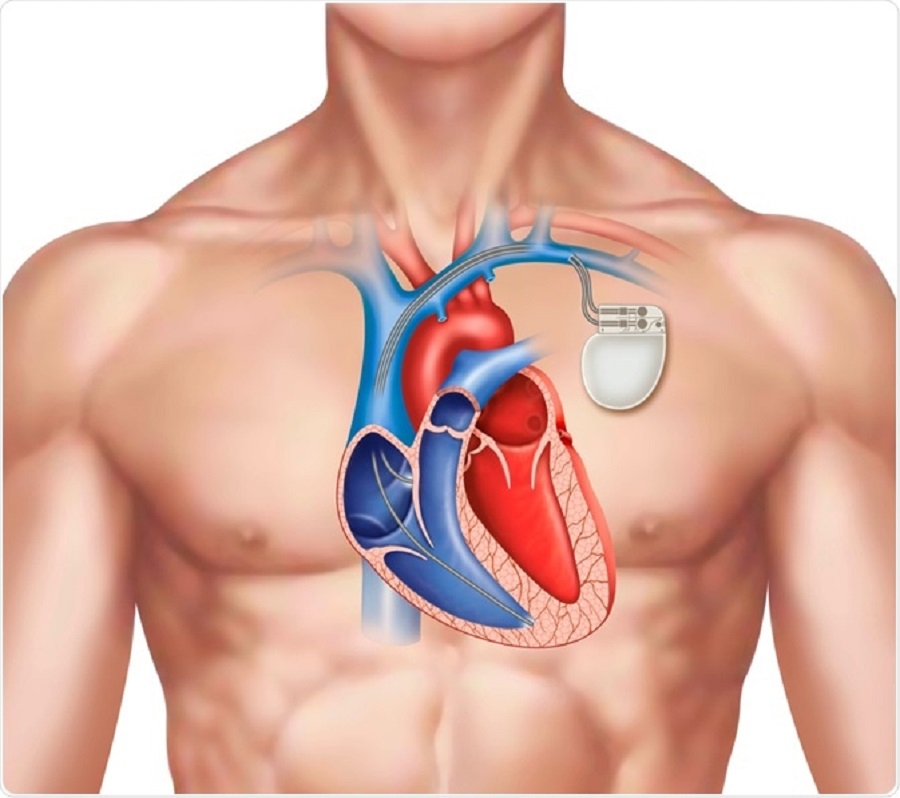

KOCHI:
For Mohan (name has been changed), episodes of dizziness and blackouts prompted him to seek medical help. Until those episodes, the 62-year old had led a fairly active life in Sharjah, UAE. He travelled to Kerala for treatment and was diagnosed with ventricular arrhythmia, an abnormal heart rhythm that originates from the lower chambers of the heart called ventricles. These types of irregular heartbeats cause the heart to beat too fast which prevents oxygen-rich blood from circulating efficiently. To manage his condition, Mohan was implanted with a cardiac rhythm management device called an Implantable Cardioverter Defibrillator (ICD) from healthcare company Abbott. This dual-chamber ICD is equipped with the latest technology and can be implanted using a minimally invasive procedure.
The ICD is a small electronic device that is implanted in the upper chest and works to restore a normal heart rate and rhythm for patients with cardiac arrhythmia and heart failure. This next-generation, smart device from Abbott has advanced heart rhythm management features and offers new opportunities for doctor-patient engagement through a smartphone application. This smart ICD is Bluetooth enabled for easy, continuous, and real-time remote monitoring to detect irregular heartbeats for timely medical interventions.
“From diagnosis, monitoring, and managing heart rhythm issues to recoding data on even the minutest changes, new remote monitoring devices are much more precise and accurate. The heart is unable to pump blood in case of irregular heart rhythm which can lead to sudden cardiac death, if not treated immediately. The implanted device generates an electrical impulse when it senses a life-threatening change in the heart rhythm thus helping to restore the heart’s natural rhythm and potentially save lives”, said Dr Mahesh Nalin Kumar, head of the cardiology department at Parumala International Cardiothoracic Centre, Parumala, Kerala, who operated on this patient.
These devices can play an essential role in the prevention of sudden cardiac deaths in patients who suffer from reduced cardiac function and are at risk of undergoing fatal ventricular arrhythmias. This technology also provides new opportunities for patient engagement through easy-to-use features. People using these devices are confident that their information is being securely shared with their doctors from anywhere in the world and can comfortably have meaningful conversations with their healthcare providers. Through the convenience of an app and the confidence in remote monitoring, patients feel more engaged in their healthcare and know that when they have an issue, they can get feedback from their doctors. Physicians are also able to provide the best care to their patients quickly, effectively and in real-time.
more recommended stories
KOZHIKODE:Showcasing Kerala as the domain leader.
THIRUVANANTHAPURAM:A recent research, published by scientists.
THIRUVANANTHAPURAM:Ramping up Kerala’s position as the.
KOCHI: Indian Myeloma Congress 2026, a.
KOZHIKODE: myHart Starcare ,Calicut has successfully.
KOCHI:Amrita Hospital, Kochi will serve as.
KOCHI:Amrita Hospital, Kochi have successfully performed.
KOCHI:The Physical Medicine and Rehabilitation (PMR).
MUMBAI:Every mother remembers the magic of.
കൊച്ചി : കുട്ടികളിൽ കാണപ്പെടുന്ന പ്രധാന വാസ്കുലൈറ്റിസുകളില്.